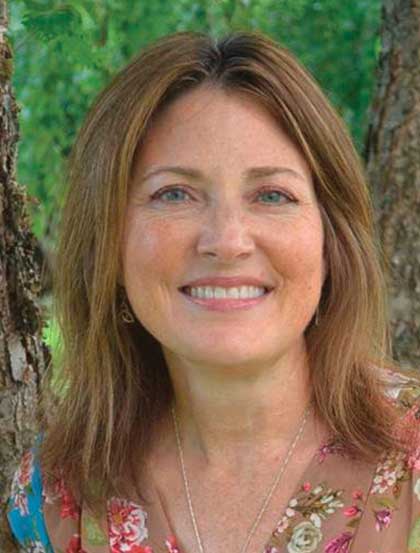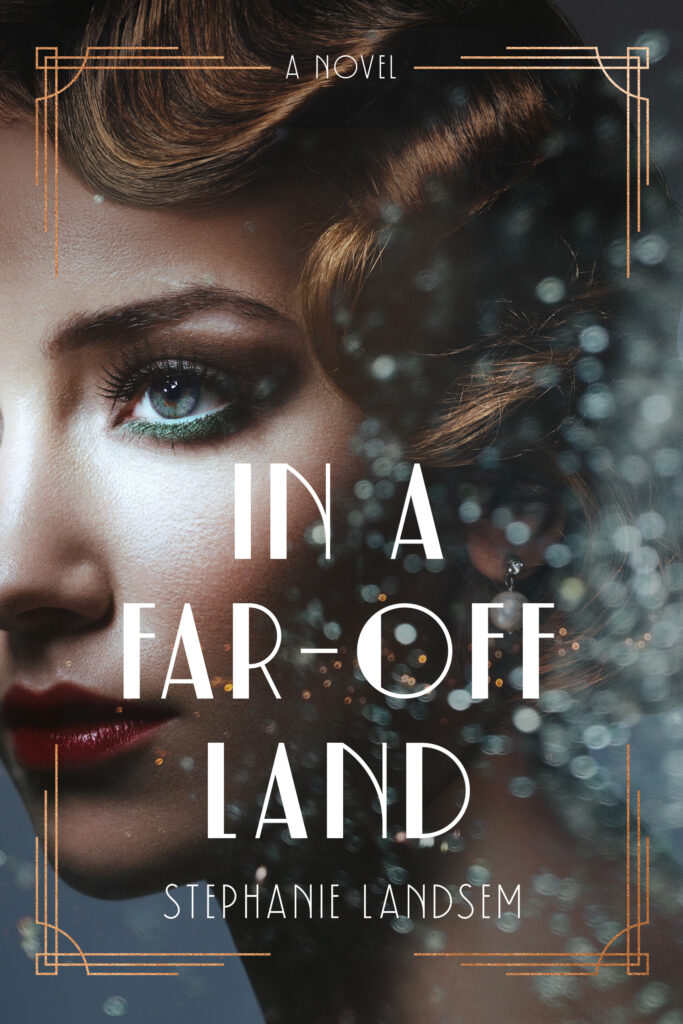
In real life, author Stephanie Landsem has explored ruins, castles and cathedrals on four continents. She began traveling when she was a teenager, backpacking through Germany and Eastern Europe, studying German in Salzburg, eating gelato in Italy and riding camels in Morocco. Stephanie says travel is the best kind of research and in the process of exploring she has met a number of fascinating characters, who sometimes find their way into her books.
When Stephanie isn’t writing historical fiction, she is reading, gardening, cooking or volunteering at church. And, although she loves exploring, she is just as happy at home in Minnesota with her husband of thirty years, their four adult children, two cats and one dog.
. . .
If someone asked you to describe yourself with one word, what word would that be?
Hopeful. I tend to be a realist — or some might call it a pessimist — and that can lead to despair when we look to all the sadness and hurt in the world around us. But hope turns that despair right on its head, remembering that there is nothing that God can’t work with for good for those that trust in Him.
What has kept you going on your writing journey?
The support of my family and friends has been a huge blessing to me. When I start to wonder if maybe I’m not called to this, that I can’t do it, and there has to be an easier way, there is always someone there to lift me up. Sometimes a word of encouragement comes at just the right time. And of course, family and friends are there for me to celebrate the high points and remind me that this is why I put in those hours at my desk.

Let’s talk about your new book, In A Far Off Land (Tyndale House, May 2021). What drew you to write about the Great Depression era?
The era of the Great Depression was one of enormous change in the United States. Women’s roles were changing rapidly, and Prohibition was having dramatic effects on crime and law enforcement. Nationalism and communism were becoming powerful motivators in the political realm at a time when we were experiencing heightened racial tensions and prejudices in city and rural areas. Then the economy went into a tailspin that added strain to every family in the country. Despite all these difficulties, what we hear from many of our parents and grandparents who lived through this time are stories of resilience, heroism, and family togetherness. I’ve always been interested in this juxtaposition and hoped to write a story that showed the many facets of this time period in our country.
Those who “create” usually tap into a personal “toolbox” of elements to define their style. For example, a painter might use color, light, and/or shadows in s certain way to “sign” his work. A musician might use syncopation, key changes, and/or vocal intonation to set herself apart. What two or three elements most define who you are as a storyteller?
1. Connections. I look for connections that I can draw between our modern life and the historical time I’m writing. I especially love to connect how people in history are very much the same as people now — we may have differences in dress, transportation, work and food — but we are looking for the same things in our lives — love, security, family, and God. When a reader realizes this, they can connect with the story in a new and meaningful way.
2. Details. I love the research process and especially looking for those small details that will immerse the reader in the story. When you find the right detail and put it in the right place, the reader feels like they are ‘right there’ and that’s what makes historical fiction so satisfying!
Please tell us a little about your writing habits and what inspires you.
I’m most often inspired by women’s stories of strength and transformation in the face of difficulties — and there are plenty of those kinds of stories in all historical time periods. A little research is all it takes to get the idea for a story and start asking the building-block question of any good novel: What if? After that, it’s more research, plotting, and writing. I’m a very slow writer so that part takes the longest. Then there’s revising, input from writing friends, and of course a good editor because commas are my downfall!
Thank you, Stephanie! It’s nice to have you back at Divine Detour.
~ ~ ~
For more information about Stephanie, visit her website and follow her on Facebook, Instagram and Twitter.
To order In A Far Off Land, log on to:


